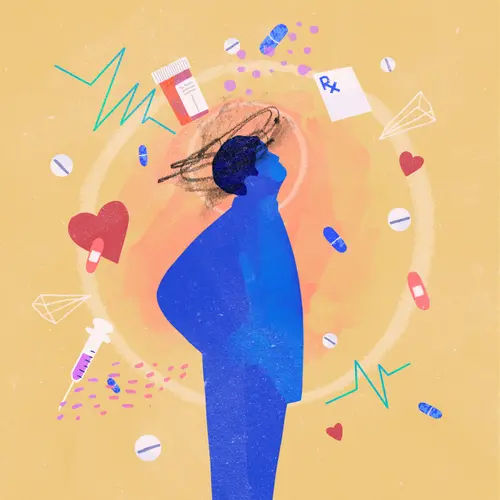A lot goes into achieving an erection. When you're turned on, nerves fire in your brain. Blood then flows into your penis. If all goes well, you’re ready for sex.
Sometimes, all does not go well. Occasional problems aren’t anything that need treatment. If issues happen more often, you may have erectile dysfunction or ED.
There are many things that can lead to ED. Some are psychological, and some are physical:
- Stress and anxiety. These are leading causes of temporary ED. If your mind’s too occupied, it’s hard to relax enough to be “in the mood.”
- Being overweight. Carrying extra pounds raises your risk of blood vessel disease, a cause of ED.
- Inactive lifestyle. If you want to reduce your chance of getting ED, get off the couch. Regular exercise can help to make sure that when the time comes, you’re ready.
Sometimes, another disease will lead to ED, including:
- Diabetes: Nerves and blood vessels that aid in getting you ready for sex are damaged by this. Your chances of ED can double if your diabetes is not well-controlled.
- Kidney disease: Along with the other issues associated with kidney disease, your hormones, blood flow to your penis, and your nervous system -- all vital for getting an erection -- are affected. It can also sap your energy and sex drive.
- Nerve and brain disorders: You can't get an erection without help from your nervous system. Things like stroke, multiple sclerosis, Alzheimer's disease, and Parkinson's disease disrupt vital signals.
- Blood vessel diseases: These can slow the flow of blood, making your body’s preparation for sex difficult. Narrowed or blocked arteries, high blood pressure, and high cholesterol are among the most common causes of ED.
Other reasons for ED can include:
- Surgery: Nerves and tissue needed for an erection can be affected during procedures to treat prostate and bladder cancer. The problem often clears up, but it may take months. In some cases, the damage is permanent. If it is, there are treatments available to help you be ready for sex.
- Injury: If you hurt your pelvis, bladder, spinal cord, or penis -- and you require surgery -- you may get ED.
- Hormone problems: Hormones fuel sex drive. An imbalance can make you uninterested in sex. If you’ve had pituitary gland tumors, kidney or liver disease, depression, or hormone treatment for prostate cancer, talk with your doctor.
- Venous leak: To keep an erection, the blood that flows into your penis has to stay a while. If it flows out too quickly, you’ll lose your erection. Injury or disease can cause this.
- Tobacco, alcohol, or drug use: All three can damage your blood vessels. If you have artery problems, smoking will make ED much more likely.
- Prescription drugs: There are more than 200 prescription drugs that can cause erectile dysfunction. Speak with your doctor if you think one of your medications may be causing this in you.
- Prostate enlargement: It’s a normal part of aging for many men. It may also play a role.
A lot of men have dealt with or are dealing with erectile dysfunction. If you think you may have it, talk with your doctor and figure out the plan that’s best for you.

